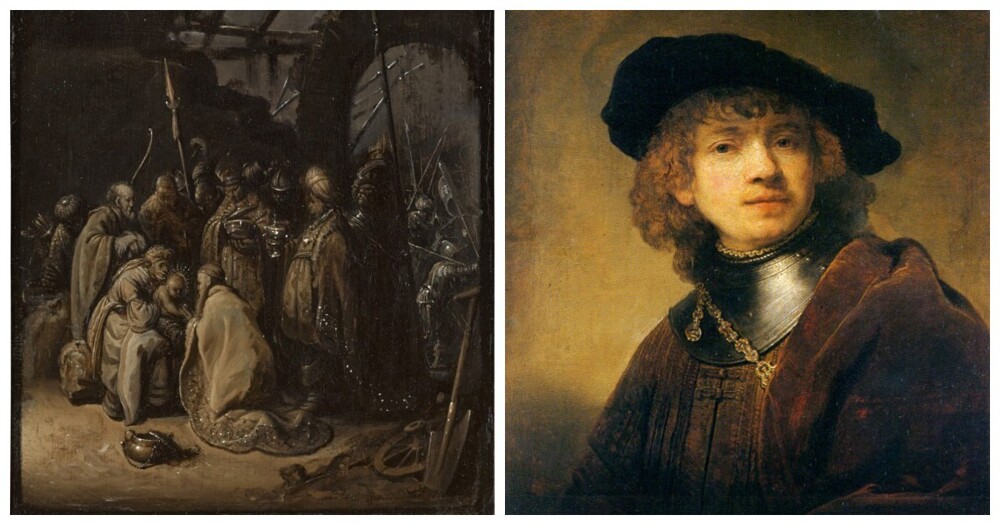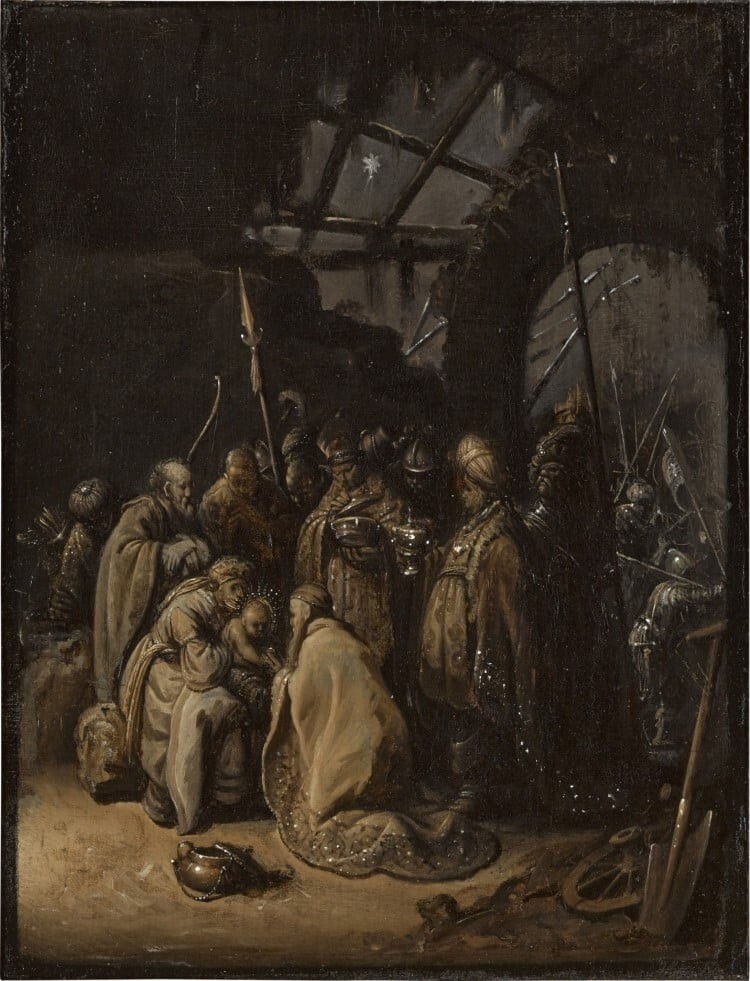An underrated Rembrandt painting sold for $13.8 million (3 photos + 1 video)
The painting “The Adoration of the Magi,” which had long been mistakenly attributed to Rembrandt’s student, turned out to be a painting by the master himself and was sold at Sotheby’s for $13.8 million. 
The latest Sotheby's auction results prove that new discoveries are still being made in the art world, even when it comes to history's most famous artists. Rembrandt Harmensz van Rijn is one of the most beloved artists of the Dutch Golden Age, and his paintings, etchings and drawings continue to captivate our imagination. So much so that a painting that was valued at $15,000 two years ago has just sold for £11 million ($13.8 million), CNN reports.
The sale took place at Sotheby's Old Master & 19th Century Paintings auction in London on December 6th. The Adoration of the Magi is a small oil painting by a 17th century artist. It first attracted attention in 1955 when it was purchased by collector J.C. Heldring. His widow then sold the painting to a German family in 1985, who in turn auctioned it at Christie's in 2021.
Interestingly, although the painting was originally attributed to Rembrandt, at the 2021 auction it was classified as part of the “Rembrandt circle.” This usually means that the work was carried out by a student or close associate of the artist. At the time, the work was estimated at $11,000 to $16,000 and was eventually sold for $910,000 to an anonymous buyer.
Whoever made this purchase clearly knew what they were doing, as the painting was given an 18-month study by Sotheby's experts and re-evaluated. The examination included x-rays, as well as consultations with leading Rembrandt experts. As a result, Sotheby's appraisers concluded that the work was indeed painted by Rembrandt, most likely when he was a young artist living in Leiden.
Acknowledgment of authorship is of great importance, since it is rare to see a biblical scene by Rembrandt for sale. Typically, Sotheby's said in a press release, all Rembrandt paintings offered at auction over the past three decades have been portraits or studies of a single character. 
"I would say it's particularly significant because it expands our understanding of Rembrandt at that pivotal period in his development and career, when he was clearly very ambitious and developing rapidly as an artist," George Gordon, co-chair of Old's world painting department, told CNN masters at Sotheby's.
Sotheby's has determined that the Adoration of the Magi was most likely first mentioned in a 1714 inventory by a Dutch collector. The painting then changed hands several times at the beginning of the 19th century and disappeared until the mid-20th century. At the time it was considered the work of Rembrandt and was exhibited several times. But thanks to a German art critic who saw the work only in black and white photography and described it as a work of the Rembrandt school, it was ignored and excluded from the catalog of the artist's works.
Given that the 2021 auction saw its sale price significantly exceed its estimate, it is possible that many bidders were already aware of the painting's high quality and the possibility that it might indeed be a Rembrandt. Now the lucky owner has the privilege to add a rare exhibit to his collection.
“Very few narrative paintings by Rembrandt remain in private hands, so for a private collector or institution this opportunity is as rare as it is exciting,” Gordon shared.
“This exquisite painting is as much a product of Rembrandt's brush as of his intellect. All the hallmarks of his style of the late 1620s are visible both on the visible surface of the painting and in the deeper layers revealed by scientific methods, indicating many changes in the process of its creation and shedding new light on the way he thought. 
In the video below, art historian Andrew Graham-Dixon talks about the significance of Rembrandt's Adoration of the Magi. According to him, this is a very unusual, rare and intimate work of the young artist-prodigy, which allows you to “look into his thoughts” and see the stages of work on the composition.
“One of the many factors that makes this painting so fascinating is the fact that Rembrandt was only 22 years old when he created this small but mesmerizingly intense panel. Twenty-two, and yet sophistication, usedThe use of light, the sense of storytelling - it’s all simply extraordinary.”
